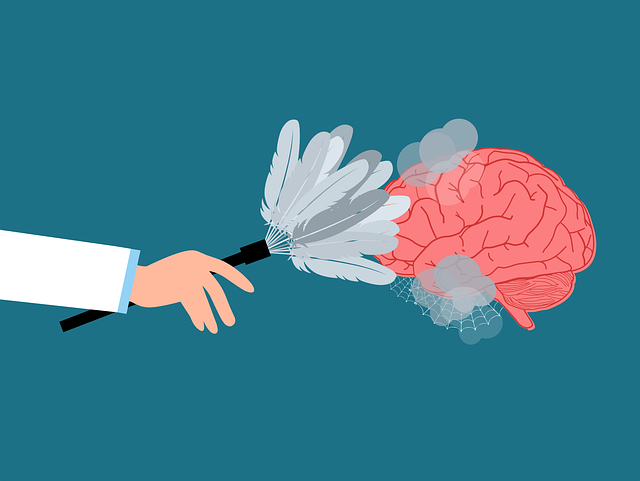Longmont Terminal Illness Therapy provides essential mental wellness self-assessment tools that facilitate personal introspection through evidence-based methodologies. These tools guide users in understanding their emotional states, developing coping strategies, and managing stress, serving as a starting point for personalized growth. Their innovative program integrates Compassion Cultivation techniques to counter Mental Illness Stigma, combining traditional therapy with mindfulness. This comprehensive framework improves patient care, supports risk management planning, and encourages proactive mental health enhancement through accessible online platforms and mobile apps.
Mental wellness self-assessment tools play a pivotal role in empowering individuals to take charge of their mental health. This article explores the development and effectiveness of such tools, using Longmont Terminal Illness Therapy (LTIT) as a compelling case study. LTIT demonstrates how tailored assessments can significantly enhance treatment outcomes. We delve into the process of creating valuable self-assessment tools, highlighting key considerations for mental health professionals. By understanding user needs, incorporating validated scales, and ensuring cultural sensitivity, we can foster more effective and accessible mental wellness management.
- Understanding Mental Wellness Self-Assessment Tools
- Longmont Terminal Illness Therapy: A Case Study Approach
- Developing Effective Self-Assessment Tools for Mental Health
Understanding Mental Wellness Self-Assessment Tools

Mental wellness self-assessment tools play a pivotal role in empowering individuals to take charge of their mental health. These tools serve as a gateway for personal introspection, enabling users to gain valuable insights into their emotional well-being and identify areas that may require professional support or lifestyle adjustments. By utilizing evidence-based methodologies, these assessments offer a comprehensive overview of various aspects of mental wellness, including stress management, social skills, and overall resilience.
At Longmont Terminal Illness Therapy, we recognize the significance of self-assessment in facilitating meaningful change. Incorporating mind over matter principles, our tools are meticulously designed to assist individuals in navigating their mental health journeys. Through these assessments, users can gain clarity on their emotional states, develop coping strategies, and enhance their ability to manage stress effectively. Moreover, they provide a starting point for personalized growth, whether it’s through social skills training or other therapeutic interventions tailored to individual needs.
Longmont Terminal Illness Therapy: A Case Study Approach

In the context of mental wellness self-assessment tools development, Longmont Terminal Illness Therapy offers a compelling case study approach. This innovative program focuses on addressing terminal illness and its psychological implications, integrating practices like Compassion Cultivation to mitigate the pervasive Mental Illness Stigma Reduction Efforts. By combining traditional therapy with contemporary mindfulness techniques, Longmont Terminal Illness Therapy provides a comprehensive framework for mental health professionals. Such an integrative model not only enhances patient care but also aids in effective Risk Management Planning, enabling practitioners to navigate complex emotional landscapes with enhanced compassion and resilience.
Developing Effective Self-Assessment Tools for Mental Health

Developing effective self-assessment tools for mental health is a vital step in fostering individual well-being and supporting those facing challenges like terminal illness in Longmont. These tools play a crucial role in helping people gain insights into their mental state, identify areas of concern, and take proactive measures to enhance their overall wellness. By incorporating elements of burnout prevention, anxiety relief, and stress management, self-assessment tools can empower individuals to take charge of their mental health journey.
Self-assessment tools designed for mental health should be user-friendly, accessible, and tailored to diverse populations. Incorporating evidence-based practices and leveraging technology can enhance their effectiveness. For instance, online platforms offering interactive questionnaires or mobile apps with personalized feedback mechanisms can encourage regular use, enabling individuals to track progress over time. Such tools can also serve as valuable resources for organizations conducting stress management workshops, promoting a holistic approach to wellness within workplaces or communities.
Mental wellness self-assessment tools play a pivotal role in empowering individuals to take charge of their mental health. As demonstrated by the case study on Longmont Terminal Illness Therapy, these tools can facilitate early detection and intervention, leading to improved outcomes. By understanding the nuances of mental wellness assessment and leveraging innovative approaches, we can develop effective self-assessment tools that foster better mental health management and overall well-being.














